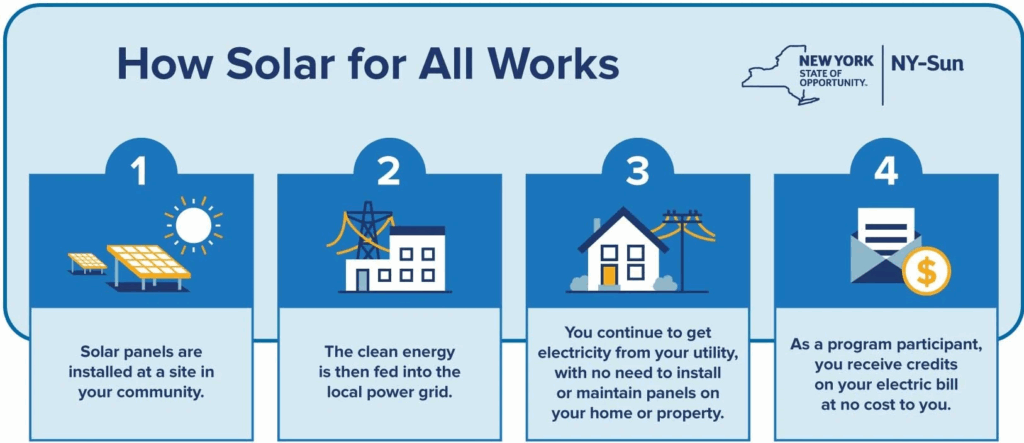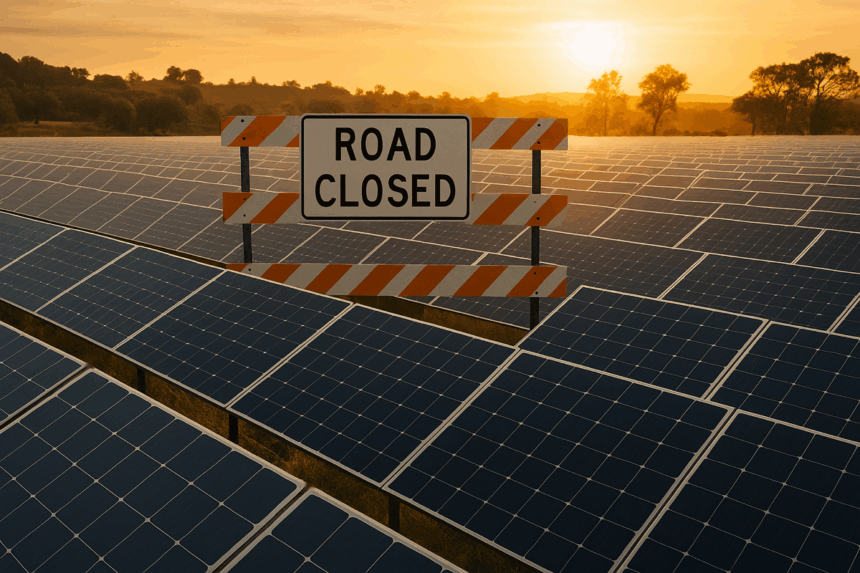EPA Pulls Plug on $7 Billion Solar Program
The Trump administration’s Environmental Protection Agency (EPA) halted a $7 billion national solar energy initiative, freezing projects aimed at helping low-income Americans transition to clean energy. The program, known as Solar for All, was part of the Greenhouse Gas Reduction Fund — a landmark investment in renewable energy designed to expand solar access nationwide.
Now, several environmental and labor groups — including Solar United Neighbors, the Rhode Island AFL-CIO, and the Rhode Island Center for Justice — are suing the EPA, accusing the agency of illegally terminating the program. They argue the decision ignores both congressional intent and the public need for affordable clean energy.
The lawsuit states the stoppage is a direct blow to American workers, retirees, and vulnerable families already struggling with high energy bills.
What’s Happening & Why This Matters
Funding Vanishes, Communities Left Behind

According to the lawsuit, the EPA already approved multiple work plans for Solar for All projects across states like Florida, Texas, and Indiana. The program would have delivered over $15 million in technical support and local deployment efforts to expand rooftop and community solar access.
These projects primarily targeted low-income and disadvantaged communities, giving homeowners access to no-cost solar installations and lower utility bills. Plaintiffs argue that by terminating the program, the EPA left thousands of Americans with no affordable energy alternative.
One plaintiff, Anh Nguyen of Georgia, shared her struggle with electric bills reaching $500 per month during the summer. She applied for Solar for All to reduce those costs but now faces uncertainty. “The upfront cost of solar is simply unaffordable,” Nguyen said in the complaint.
Lawsuit Seeks Reinstatement
The complaint, filed in federal court, accuses the EPA of failing to perform a “reasoned analysis” before canceling the program. It says the agency did not explore alternative methods of distributing the funds or consider the broader economic harm.
The plaintiffs seek a court injunction requiring the EPA to reinstate Solar for All and to prohibit future attempts to block the funding. “According to EPA itself, one hundred percent of Solar for All funding was slated to support the low-income and disadvantaged communities who need it most,” the lawsuit stated.

The Rhode Island AFL-CIO, one of the lead plaintiffs, also warned of effects across the labor sector. The group invested heavily in workforce training for renewable energy jobs, hoping to support its aging workforce and protect pension systems as older workers retire. Without Solar for All, union leaders say they lose both future jobs and financial stability for retirees.
“The average age of our members is around 55,” the Rhode Island AFL-CIO said. “We built this program to train the next generation of skilled workers and sustain our pension funds. That’s now in jeopardy.”
A Retreat From Clean Energy Goals
The lawsuit marks another policy reversal under President Donald Trump, who previously described large-scale green programs as “wasteful spending.” His administration argues the EPA lacks the legal authority to fund initiatives like Solar for All under the Inflation Reduction Act.
Plaintiffs disagree, noting that Congress appropriated $3 billion in March to maintain the program and that those funds “remain available.” They claim the EPA has both the money and the mandate to continue distributing grants.
The Rhode Island Center for Justice — which had planned to build solar projects for low-income families — now says it must shift to crisis management, focusing on preventing electricity shutoffs instead of offering long-term clean energy solutions.

“Families we serve are facing immediate energy insecurity,” the organization said. “We were building a sustainable future. Now, we’re back to emergency assistance.”
TF Summary: What’s Next
Expect the lawsuit to gain traction as both environmental and labor advocates unite to pressure the EPA. If the court reinstates the program, the reversal becomes a benchmark for protecting federal renewable initiatives from administrative rollbacks.
MY FORECAST: Energy demand is soaring, especially during record-breaking summers. Without large-scale clean energy programs, Americans face higher utility bills and increasing dependence on fossil fuels. Whether the Solar for All program restarts or not, the message is pronounced: America’s renewable future is mired in politics.
— Text-to-Speech (TTS) provided by gspeech


